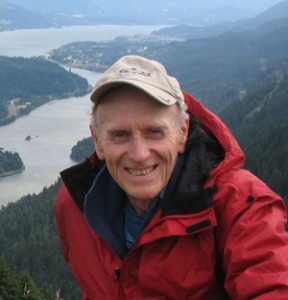With the dramatic growth of the US coal and oil industry in the Dakotas – and the subsequent increased use of the Columbia Gorge transportation corridor – come new concerns about safety and the environment. The Columbia Gorge Interpretive Center will host a presentation and discussion by retired physicist Dr. Duane Ray to examine the issues.

“It is a complicated subject,” he said, “with money, jobs, security, global warming, and quality of life in the Gorge for both the present and the future, all intermixed. Coal and oil production to the east needs an outlet. There are concerns about safety as trains move through the Gorge, and there are concerns about their eventual destination and the long-term impact on air quality and global warming.”
He will present information about the source of coal and oil, their passage to the west coast by various routes, including the Columbia River Gorge, and their shipment to a final destination.
“Train traffic through the Gorge is the subject of an active, on-going discussion that needs to engage everyone,” he explained. “It is important for people to have straight information from a broad perspective.” Following his presentation, which he said includes many photographs, Dr. Ray expects there to be a lively discussion.
When he retired after 30 years with Lucent Technologies, Bell Laboratories, Dr. Ray said he was drawn to the Northwest by its vast beauty and the love he and his wife had for the outdoors. He took up mountaineering, joined Mazamas (mountaineering club), and has summited many of the Cascade peaks that initially attracted him to the region.
He lives in Gresham, where last year he was chair of the Senior Studies Institute (SSI), which is associated with Mt. Hood Community College. It is a group of some 350 people who meet weekly at various Portland locations. It sponsors 120 2-hour classes each year on a wide range of subjects. The classes are presented by both members and outside speakers. Dr. Ray received a BA in physics from Swarthmore College, followed by an MS and PhD in physics from the University of Pennsylvania.
His presentation will be at 2 p.m. Sunday, Sept. 21, in the DeGroote Theater at the museum. There is no charge, other than paid admittance to the interpretive center.


